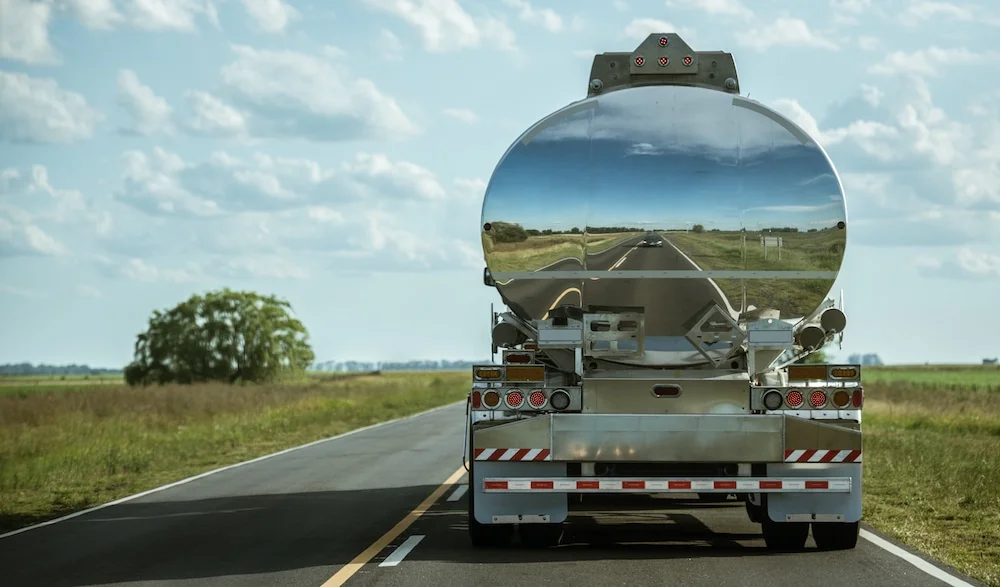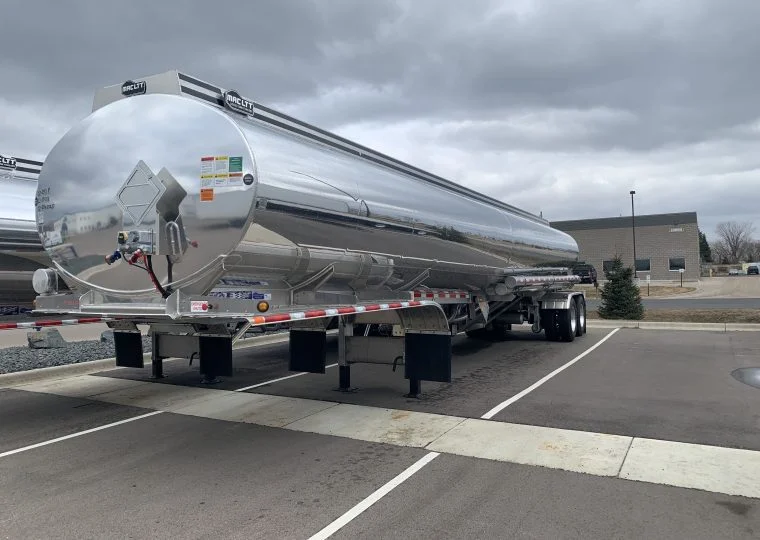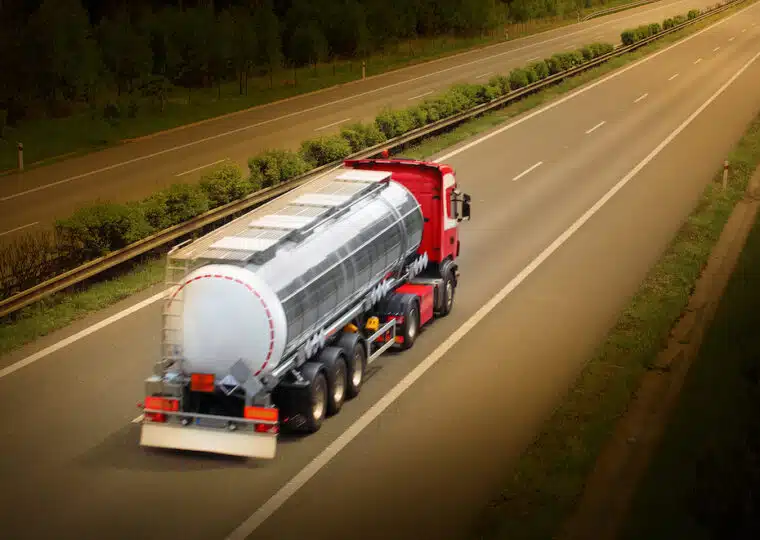Trucks and trailers are built to be sturdy but they require care and maintenance to keep them operating in a safe and efficient manner. While this might seem like common sense to many, anyone that has worked with fleet services will know that having quality preventative maintenance done by fleet management is somewhat rare.
If you are a truck operator, making sure your trailer is in good shape can keep you on the road for the long haul. Here are some tips to keep your tank trailer in the best shape possible, as well as some indications that you may want to have a professional look at the trailer for repairs.
 Maintenance Tips to Keep Your Tank Trailer on the Road
Maintenance Tips to Keep Your Tank Trailer on the Road
There are dozens of things that drivers and owner-operators can do to help reduce long-term repair and maintenance costs. Here we’re going to look at the most common, and the easiest for the average operator to act on.
1. Keep the Tank Solid
The tank is the most noticeable part of your rig, so it should also be the best possible representation of you and your company. This means it should be in good repair, with no leaks, bends, dents, or other deformities which can contribute to structural issues under load.
2. Clean The Trailer Interior
One of the best ways to help keep the tank in good condition is to keep it clean. Many drivers simply don’t realize how much of a toll the substances they’re hauling, as well as the hauling process itself, can take on the trailer. Going from one region to another, particularly if you’re driving through Minnesota during the winter, can mean exposure to rotating climates, from freezing cold to the searing sun. De-icing compounds can damage electrical connections and similar metal components, while oil contains a compound called hydrogen sulfide that can damage aluminum, a common tank material.
3. Clean Manhole Gaskets
The manhole gaskets on your tank are one of the places that can see some serious build-up of crud and debris. If this isn’t cleaned regularly, it will create a problem with sealing or contamination. Just pull the gaskets out, clean them, and replace them. This is something you should be doing about twice a year, or between every change in the product hauled.
4. Watch Your Tires Closely
The tires on tank trailers are required to have a pressure system, but also be of a type with low rolling resistance. All tires on the trailer should have either a pressure monitoring system or an auto-inflation system to face the changing challenges of each load and its weight. The tires also need to have sufficient tread to maintain traction and prevent rollovers from occurring.
Want to keep your fleet on the road? North American Trailer’s fleet maintenance services can help.
5. Perform Valve Inspections
Tank trailers have a number of valves that need to be checked and maintained. These include hydraulic safety valves, and vacuum and pressure valves in the tank that all work together to make sure the load is transported safely. Operators in very cold regions will want to pay close attention to their valves, which can freeze and subsequently malfunction. To help prevent this, make sure they’re all lubricated and pressure-tested.
6. Keep It All Torqued Down
Most tank trailers have a significant number of bolts. These all need to be properly maintained and tightened. Components like shock bolts, spring u-bolts, and ring bolts should all be tightened down to proper torque specifications. If a bolt or nut cannot be tightened, it may be stripped and in need of replacement.
7. Keep Up With Cargo Tank Inspections
As per DOT regulations, your cargo tank needs to be tested and inspected on a regular basis to ensure that it’s safe for usage. Visual inspections of your cargo tank’s exterior and leakage tests should be conducted annually. Thickness tests to ensure the cargo tank’s interior hasn’t been corroded should be performed every two years. Visual inspections of your cargo tank’s interior, along with upper coupler inspections and pressure tests, need to be conducted every five years to ensure safe operation.
North American Trailer offers DOT inspections for tanker trailers.
Signs Your Tank Trailer Needs Service or Repairs
If you notice any of the following issues with your tank trailer, it is probably time to get it into a trusted local truck maintenance shop to get checked out and repaired.
1. Pressure Loss
The loss of air pressure in your tank trailer can often result in you being unable to fully load the tank. The symptoms of air pressure loss can mean anything from a simple stuck valve to a bad compressor. Signs of pressure loss include:
- Repeated tank cycles
- The truck having trouble keeping a normal air pressure
- Air gauges that don’t move even after several minutes
- Noise coming from safety valves
In most cases, the cause of the pressure loss is not a compressor, but a faulty or stuck valve. Working with an experienced truck shop like Blaine Brothers can diagnose this quickly and get you back on the road.
2. ABS Lights
ABS lights indicate some sort of problem with the braking system. There are so many potential codes that the lights can be triggered for almost any reason, it seems. The most common reasons your ABS lights may activate are:
- Bad ABS module
- Dirty tone rings
- Wheel bearings that are starting to fail
- Wheel speed sensor wires that are frayed or damaged, potentially short-circuiting
- Failing battery or alternator, creating low battery voltage
3. Damage
While small instances of mostly cosmetic damage to your tank trailer may not seem like cause for concern, they should not be disregarded altogether. Nicks, gouges, and even small dents can change the structural integrity of the tank. Additionally, even the slightest accidents can cause damage to the coupling, which can lead to a catastrophic failure if not addressed.
4. Leaks
Leaks are one of the most problematic issues with a tank trailer, for several obvious reasons. The big one is the loss of product. There is also the potential for contamination if the contents of the trailer are food-grade, which can make the goods undeliverable. It can also represent a significant safety hazard, depending on what is being hauled. Substances like oil, for example, may not be highly flammable, but they can create a hazard when leaking onto the roadway.
North American Trailer semi trailer repair shops in Minnesota, Wisconsin, and North Dakota help you get back on the road.
Partner With North American Trailer for Your Tank Trailer Maintenance & Repair Needs in Minnesota, Wisconsin, and North Dakota
If you’ve noticed some of the signs that your tank trailer may need service, or if it’s just time to give the tank a good inspection and check-up, you can trust North American Trailer to give your rig the care and attention it deserves. Contact North American Trailer today to get back on the road as quickly as possible!


 Maintenance Tips to Keep Your Tank Trailer on the Road
Maintenance Tips to Keep Your Tank Trailer on the Road